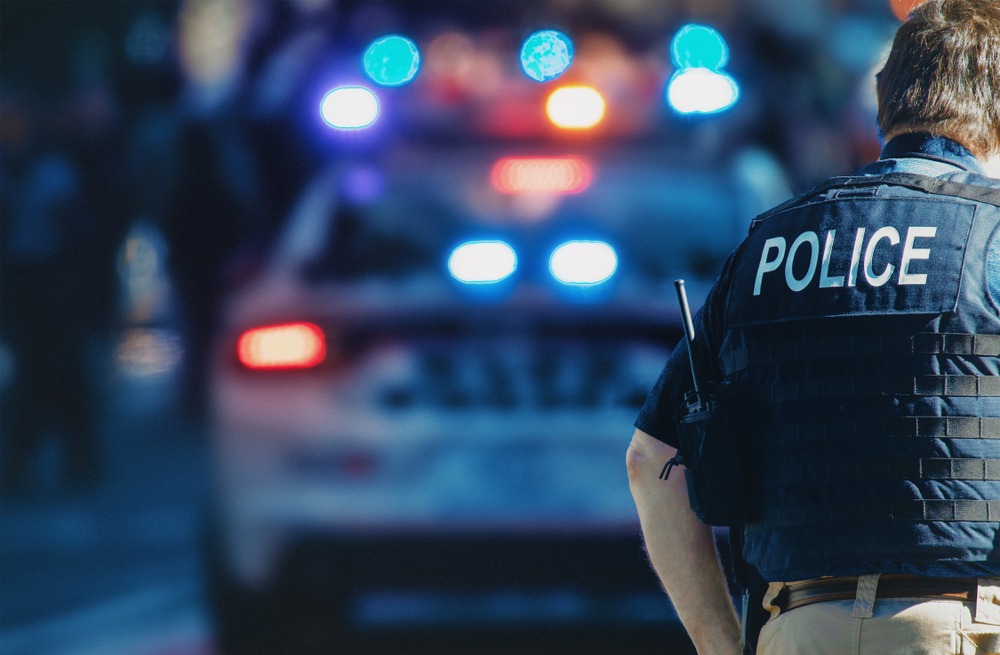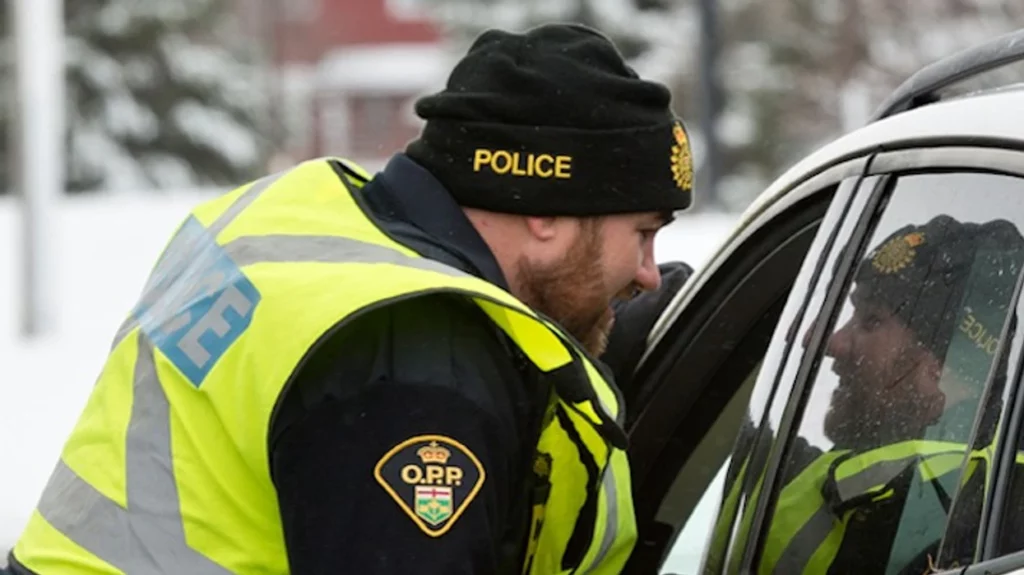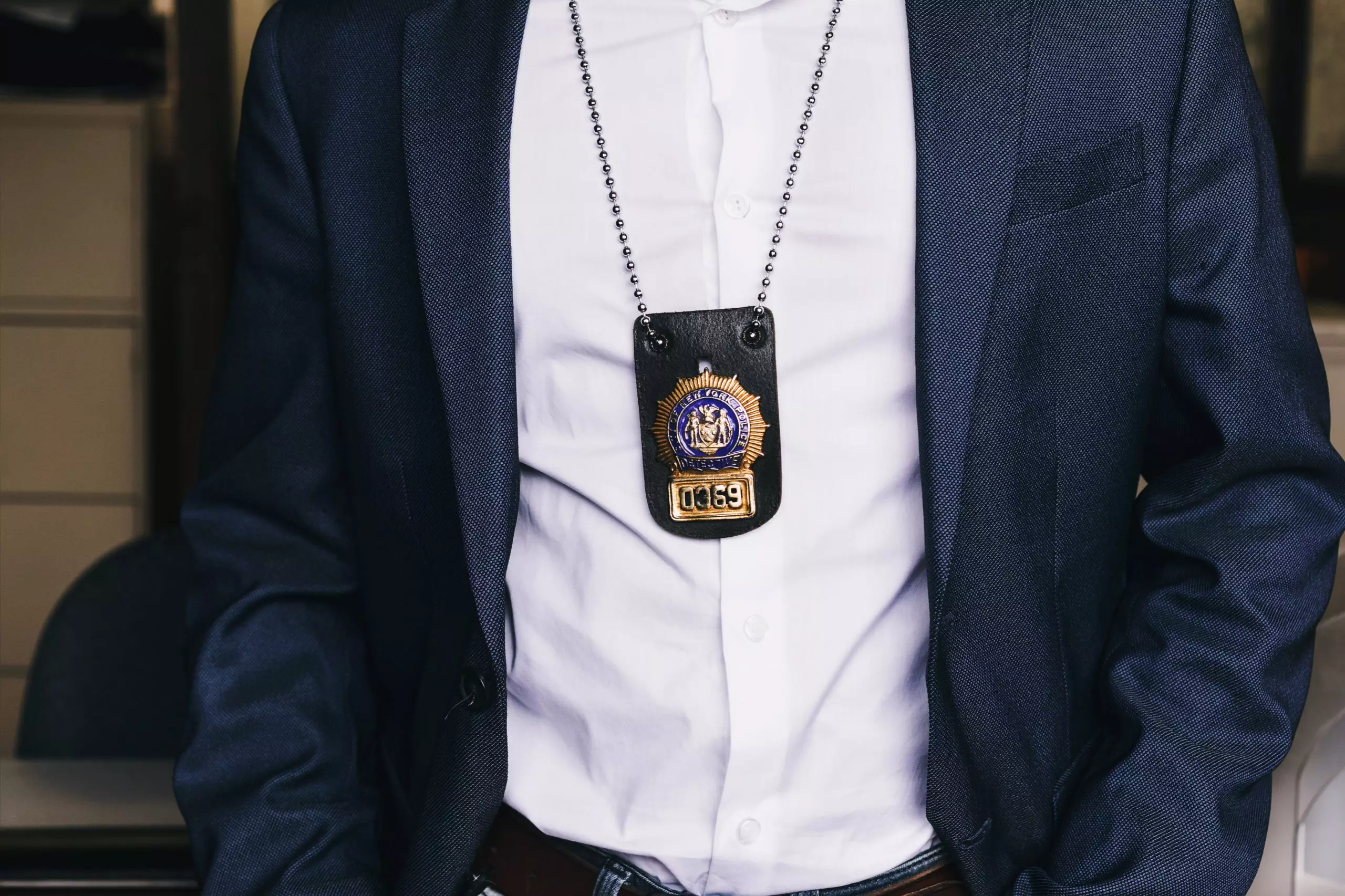Yes, in the United Kingdom, the police must identify themselves in certain situations.
In the UK, police officers must identify themselves if asked. The Police and Criminal Evidence Act 1984 (PACE) requires this.
If you’re stopped, you can request the officer’s name, rank, and warrant number. You also have the right to see their ID card. If they refuse, ask why and note their description and location. Report it to their police department or the Independent Office for Police Conduct (IOPC).
Tips for interactions: be polite, answer questions if asked, and ask for clarifications. If you believe your rights are violated, you can refuse to answer but be ready for possible arrest.
When Can the Police Stop and Search You in the UK?

Police and Criminal Evidence Act 1984 (PACE)
PACE is a fundamental piece of legislation that governs police powers in England and Wales. It provides the legal framework for stop and search procedures and outlines the circumstances under which the police can conduct these actions. PACE includes provisions for stop and search with and without reasonable suspicion, as well as the grounds required for conducting such searches.
Misuse of Drugs Act 1971
This law grants the police specific powers to stop and search individuals suspected of drug offenses. If an officer reasonably suspects that someone is in possession of illegal drugs, they can conduct a search under this legislation.
Terrorism Act 2000
The Terrorism Act extends police powers for stop and search when there is reasonable suspicion of terrorism-related activities. Under this law, police have broader authority to stop and search individuals and vehicles in specific areas deemed to be at risk of terrorism.
Public Order Offenses
The police can stop and search individuals if they have reasonable grounds to suspect that a person is carrying items that could be used to commit a public order offense. This may include weapons or items intended for vandalism or violence.
What Can You Do If a Police Officer Doesn’t Identify Themselves?
If a police officer in the United Kingdom doesn’t identify themselves when required, you have several steps you can take to address the situation and protect your rights
Politely ask the officer to provide their name, rank, and warrant number. Remind them of your right to this information.
If the officer continues to refuse identification, make a note of their physical description, their badge number (if visible), and the location and time of the encounter.
However, it’s important to remain calm and respectful during the interaction, even if the officer is not complying with identification requirements. Avoid confrontations or arguments.
Also, inquire why the officer is not providing identification. They may have a valid reason, such as an ongoing undercover operation or concerns for safety. Understanding their rationale can be helpful.
If you believe that the officer’s refusal to identify themselves was unjustified, you can file a complaint with the officer’s police department. Provide all the details and evidence you’ve gathered.
Moreover, if you’re unsatisfied with the response from the police department or believe that the matter is serious, you can contact the IOPC, an independent oversight body responsible for investigating complaints against the police.
Lastly, if you believe your rights have been violated, it may be beneficial to consult with a legal expert who can provide guidance and assist you in pursuing legal remedies.
When Are Police Required to Identify Themselves in the UK?
In the United Kingdom, the circumstances in which police officers are legally required to identify themselves are defined by a combination of statutes and legal principles.
Statutory Requirements
The primary legal framework governing police identification in the UK is the Police and Criminal Evidence Act 1984 (PACE).
Under PACE, police officers are required to identify themselves in specific situations, primarily when executing search warrants. When conducting a search under the authority of a warrant, officers must announce their identity, state the purpose of the search, and provide detailed information about the warrant, including the address and the items or individuals being searched for. This legal requirement aims to ensure transparency and accountability in search operations.
Circumstances Requiring Identification
While there is no explicit legal mandate for immediate police identification in routine street encounters, individuals have the right to ask a police officer for their name, rank, and warrant number during any interaction.
Although the law doesn’t always require immediate identification in such situations, officers are generally expected to provide this information upon request. This empowers individuals to know the identity of the officers they are dealing with and helps maintain transparency during interactions.
Exceptions and Special Case
Exceptions to the general rule of immediate police identification may exist in certain circumstances. For example, undercover police operations may necessitate delayed or limited identification to protect the safety of officers and the effectiveness of the operation.
Similarly, situations where an immediate identification could jeopardize the safety of officers or the public may lead to officers using discretion and delaying identification. These exceptions are essential to ensure the success of covert operations and to address situations where immediate identification could lead to harm.
Your Rights When Interacting with the Police

When you encounter the police in the United Kingdom, it’s crucial to be aware of your rights to ensure that your interaction is fair, lawful, and respectful. Knowledge of your rights empowers you to protect yourself while cooperating with law enforcement.
Right to Ask for Identification
You have the right to ask a police officer for their name, rank, and warrant number during any interaction. This request helps establish transparency and accountability during the encounter.
Right to Know the Basis of the Stop
The police must have reasonable grounds to stop and search you or engage in any interaction. You have the right to know why you are being stopped, searched, or questioned. The officer should provide a clear and reasonable explanation.
Right to Remain Silent
You have the right to remain silent and not answer any questions posed by the police. You are not obliged to incriminate yourself or provide information that may be used against you.
Right to Legal Representation
If you are arrested or detained, you have the right to legal representation. You can request a solicitor to be present during any interviews or questioning.
Right to Complain
If you believe your rights have been violated during the interaction, you have the right to file a complaint. Complaints can be made to the officer’s police department or to the Independent Office for Police Conduct (IOPC).
Right to Respectful Treatment
You have the right to be treated with respect and dignity during any interaction with the police. Unlawful or disrespectful behavior by the police should not be tolerated.
Right to Record the Interaction
You can use your mobile phone or other recording devices to document the interaction, provided it does not obstruct the police in carrying out their duties. Recording can serve as valuable evidence if a dispute arises.
Right to Personal Safety
You have the right to expect your safety and the safety of others during any interaction with the police. If you feel that your safety is at risk, you should take necessary precautions and seek assistance.
FAQ
Do police have to identify themselves in PA?
Pennsylvania law does not typically require police officers to identify themselves during routine encounters, but officers are expected to do so when asked by a citizen.
Do you have to identify yourself to the police in NY?
In New York, you generally do not have a legal obligation to identify yourself to the police unless you are suspected of a crime.
Do you have to identify yourself to the police in Georgia?
Georgia does not have a “stop and identify” statute, so you are not obligated to provide identification to the police unless you are being detained under reasonable suspicion of a crime.
Do you have to identify yourself to the police in America?
In the United States, identification laws vary by state. There is no federal law that requires individuals to identify themselves to the police, but individual state laws apply.
Do you have to identify yourself to the police in Florida as a passenger?
As a passenger in a vehicle in Florida, you are not typically required to identify yourself to the police unless there is reasonable suspicion of your involvement in a crime.
Can police ID passengers in Texas?
In Texas, passengers in a vehicle are generally not obligated to provide identification unless they are suspected of a crime.
Do you have to identify yourself to the police in Ohio?
Ohio law does not typically require individuals to identify themselves to the police unless there is reasonable suspicion of a crime.
Is Texas a stop and ID state?
Yes, Texas is considered a “stop and identify” state, meaning that individuals can be required to identify themselves to the police if there is reasonable suspicion of a crime.
Can you refuse ID in Texas?
In Texas, you can generally refuse to provide identification to the police unless there is reasonable suspicion of a crime. However, it’s essential to understand the specific circumstances that may require identification.
Can you film police in Texas?
Yes, in Texas, you have the right to film or record the police in public spaces as long as you do not interfere with their lawful duties. However, it’s important to exercise this right responsibly and within legal boundaries.
Final words
On the whole, the question of whether the police have to identify themselves is a matter of rights, responsibilities, and the delicate balance between law enforcement and individual liberties. While the legal framework, including the Police and Criminal Evidence Act 1984 (PACE), outlines when police must identify themselves, there are also exceptions to ensure the effectiveness and safety of law enforcement.
You have the right to ask for an officer’s identification, to know the basis for any interaction, and to remain silent when necessary. In situations where your rights are violated, documenting the encounter, reporting the incident, and seeking legal advice are essential steps toward redress.
A transparent and accountable interaction between citizens and law enforcement is a fundamental aspect of a just society. By knowing your rights and responsibilities, you can navigate police encounters with confidence while upholding the principles of fairness and the rule of law.

